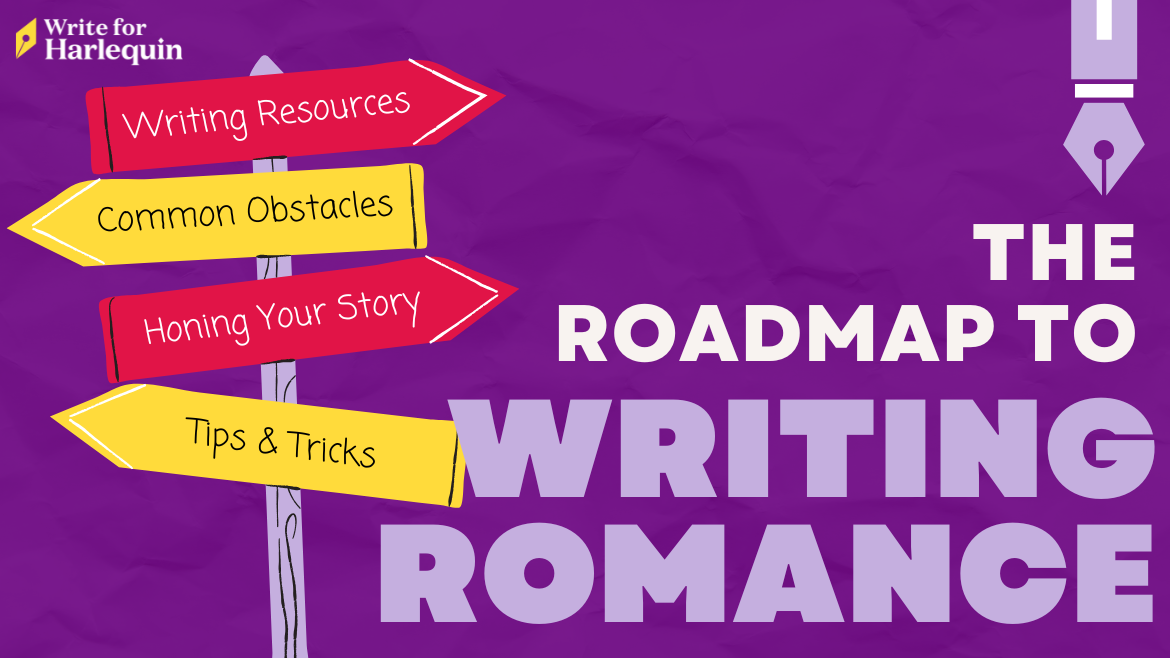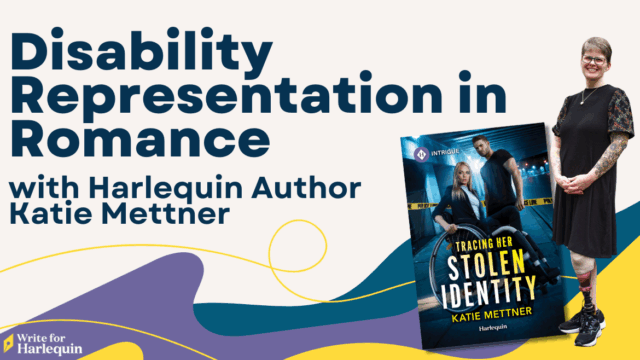
You have the perfect idea for a romance novel and you’re dying to make your characters’ Happily Ever After a reality. But how do you get there? Let Write for Harlequin’s Roadmap to Writing Romance help!
It takes more than inspiration to get your novel into the hands of an editor or reader. It takes determination, planning, and hard work. So before you even begin, here are five questions to ask yourself:
1. What am I passionate about?
What do you read for fun? Do you like sweet or sexy stories? Are you staying up late because you simply can’t put down the latest Harlequin Intrigue romance until you get to the last page? Choose a subject and genre you’re passionate about and the work will feel much easier and your story more authentic.
2. What makes my take on this story unique?
When we pick up a romance novel, we love to see our favorite tropes (Enemies to Lovers! Fake Relationship! Second Chances!) but we want them to play out in an unexpected way. What’s different about your setting, characters or plot that brings excitement and an element of surprise to the story?
3. What is my voice and how can I make it shine on the page?
Do you have a favorite romance author whose books inspired you to become a writer? It’s tempting to begin writing a book just like theirs. But chances are you fell in love with that author because they sounded special—like themselves! Your voice is born from your lived experience and unique perspective on the world. Learn to hear it and lean into it.
4. What are my writing goals?
Beyond, “Why do I want to be a writer?” ask yourself, “What do I want to achieve?” Do you want to publish a book by the time you reach a particular age? Is your goal to land on the bestseller list or earn a spectacular advance? Or do you want to inspire others by having your book on the shelves of the local bookstore and library in your community? There’s no wrong answer but understanding your goal will help you decide what you need to do to achieve it.
5. When will I make the time to write?
You may have heard the expression, “A goal without a plan is just a wish”. If you want to write a book, you’ll have to figure out when you’re going to sit down at your desk (or kitchen table or coffee shop barstool or beanbag chair) and write. A daily or weekly word or page count target can be helpful. You might feel you need several hours at a stretch to be productive, or you might prefer to write in a series of short sessions. It’s helpful to set deadlines, whether for a contest or special submission call, a writing group meeting, or a personal timeline you’re committed to. Each writer’s plan will look different based on their work style and situation, so set realistic expectations and be kind to yourself if (when) life throws you a few curves. Just pull out your map, course correct if needed, and keep going!
Happy writing!




